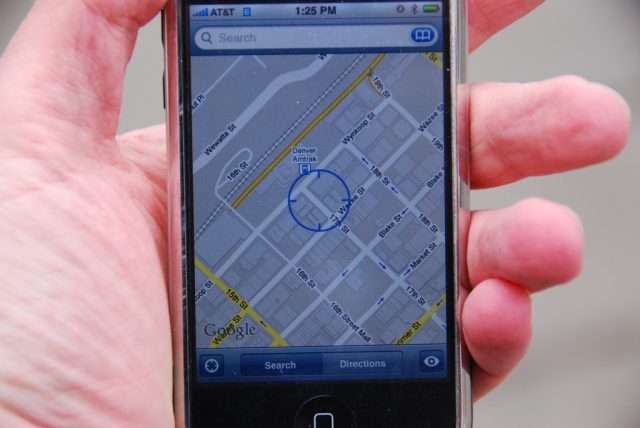
It’s amazing what the police can figure out if they just have your cell site location information (CSLI) data. If your last call of the night and your first call of the morning are in the same place, it’s not that tough to figure out where you slept overnight. That’s precisely what some legal activist groups have now shown in a criminal case currently on appeal before the Fourth Circuit Court of Appeals.
In a rare glimpse into the granular information obtained via court order, these groups examined a substantial amount of precise cell location records of a criminal suspect and used them to show how our own phones can betray us by turning into surveillance tracking devices in our pockets. Despite this seemingly surprising revelation, American courts have continuously allowed such information to be turned over to prosecutors without a warrant.
On Monday, the American Civil Liberties Union (ACLU), ACLU Maryland, the Electronic Frontier Foundation (EFF), the Center for Democracy and Technology, and the National Association of Criminal Defense Lawyers filed an amicus brief in an appeal of the United States v. Graham case. In the brief, they argued that handing over such a huge quantity of data to authorities constitutes a search as defined under the Fourth Amendment and should therefore require a warrant. The groups obtained the mobile data via the defendants’ counsel, who received it under a Brady disclosure, a legal procedure that requires prosecutors to share evidence with the accused.
A robbery gone awry
The case dates back to February 5, 2011, when two men robbed a Burger King and a McDonald’s in Baltimore—10 minutes later, they were caught and cuffed by Baltimore City Police officers. Eventually, Aaron Graham and Eric Jordan were charged with 17 counts of robbery, including the pair of fast food robberies.
A Baltimore City Police Detective first sought and obtained a search warrant for the two cell phones recovered during a search of the getaway car. Prosecutors later obtained a court order (a lesser standard than a warrant) granting disclosure of the defendants’ CSLI data for various periods totaling 14 days when the suspects were believed to have been involved in robberies. The government then applied for (and received) a second application to a another magistrate judge for a new set of CSLI data, covering a period of July 1, 2010 through February 6, 2011 (221 days).
In court, the defendants argued in a motion to suppress this evidence that “the privacy intrusions available through this type of technology are far-reaching and unconstitutional—allowing the government to retroactively track or survey a suspect through his cellular telephone, a device he likely carries with him at all hours of the day and to constitutionally protected places such as his home or church.”
A district judge agreed with the government’s argument (PDF): under the “third-party doctrine,” because the men voluntarily disclosed their own location to their mobile carrier via their phones, they did not have a reasonable expectation of privacy. The defendants’ motion was denied.
ACLU et al: “Tracking violates a reasonable expectation of privacy”
Within the new amicus brief in the appeal, the civil liberties groups argue that the court must find in their favor based on a recent Supreme Court decision.
They refer to the United States v. Jones case from 2012, where in a rare 9-0 decision, the Supreme Court found that law enforcement does not have the right to warrantlessly track a suspect by placing a GPS tracking device on his or her car.
The friends-of-the-court attorneys write:
The Supreme Court has made clear that when the government engages in prolonged location tracking, or when tracking reveals information about a private space that could not otherwise be observed, that tracking violates a reasonable expectation of privacy and therefore constitutes a search within the meaning of the Fourth Amendment.
. . .
If tracking a car’s location for 28 days violates an expectation of privacy that society is prepared to recognize as reasonable, then surely tracking a cell phone’s location for 221 days does as well.
. . .
The expectation that a cell phone will not be tracked is even more acute than is the expectation that cars will not be tracked because individuals are only in their cars for discrete periods of time, but carry their cell phones with them wherever they go, including inside Fourth-Amendment-protected private spaces. Moreover, cars are visible on the public street, whereas individuals generally keep their cell phones in a concealed place when not actively in use.
reader comments
75